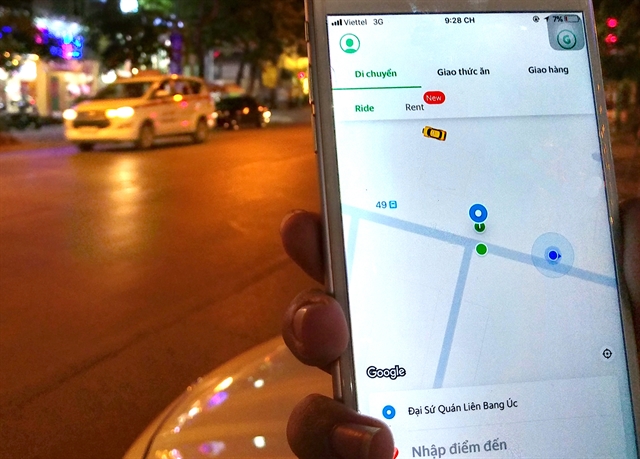If the proposal goes ahead, companies like Grab, Uber and GoViet will be managed as a separate entity from traditional taxi firms

The Ministry of Information and Communications (MIC) has proposed managing ride-hailing platforms in a different way than other transport firms.
If the proposal goes ahead, companies like Grab, Uber and GoViet will be managed as a separate entity from traditional taxi firms.
Nguyen Manh Hung, minister of Information and Communications, has submitted a proposal to Prime Minister Nguyen Xuan Phuc on the issue, Dau Tu (Investment) newspaper reported.
The draft decree on automobile transportation businesses would replace Decree 86/2014/ND-CP, which the Ministry of Transport recently submitted to the Government.
The latest draft, the eighth since 2016, includes a new definition for automobile transportation businesses, defining them as a service which includes two major stages: vehicle operation and service fee fixing.
With this definition, any firms involved in vehicle operation and price fixing must be registered as transportation companies, meaning Grab would be a transportation company and managed like taxi firms.
However, the MIC said countries such as the UK, Germany, Singapore and Indonesia have used new management models to aid the development of digital technologies to bring new benefits to society, especially heightened competition.
In Viet Nam, the Government and PM has instructed ministries and agencies to build new legal frameworks to promote innovation.
From that point of view, the ministry said it was necessary to see firms like Grab, Uber and GoViet as a separate entity, in addition to those currently regulated.
For traditional taxi operation, the ministry currently sees three stakeholders, namely taxi firms, consumers and the State. Under the draft, ride-hailing platforms would be the fourth entity.
Hung said the benefits brought by the new business model were clear, including transparency in transport costs and higher quality service.
The ministry proposed suitable management regulations, including use of technology by the State. Instead of requiring cars providing ride-hailing services to have roof signs showing that they were “contract vehicles”, agencies may request they ensure access to data of vehicles using their platform.
The ministry confirmed it was necessary to increase competitiveness with traditional taxi models, and ride-hailing platforms would be one way to go about this. — VNS





